Walking in Tall Weeds Robin W. Pearson
Visit to download the full and correct content document: https://ebookmass.com/product/walking-in-tall-weeds-robin-w-pearson-2/

More products digital (pdf, epub, mobi) instant download maybe you interests ...

Walking in Tall Weeds Robin W. Pearson
https://ebookmass.com/product/walking-in-tall-weeds-robin-wpearson-2/
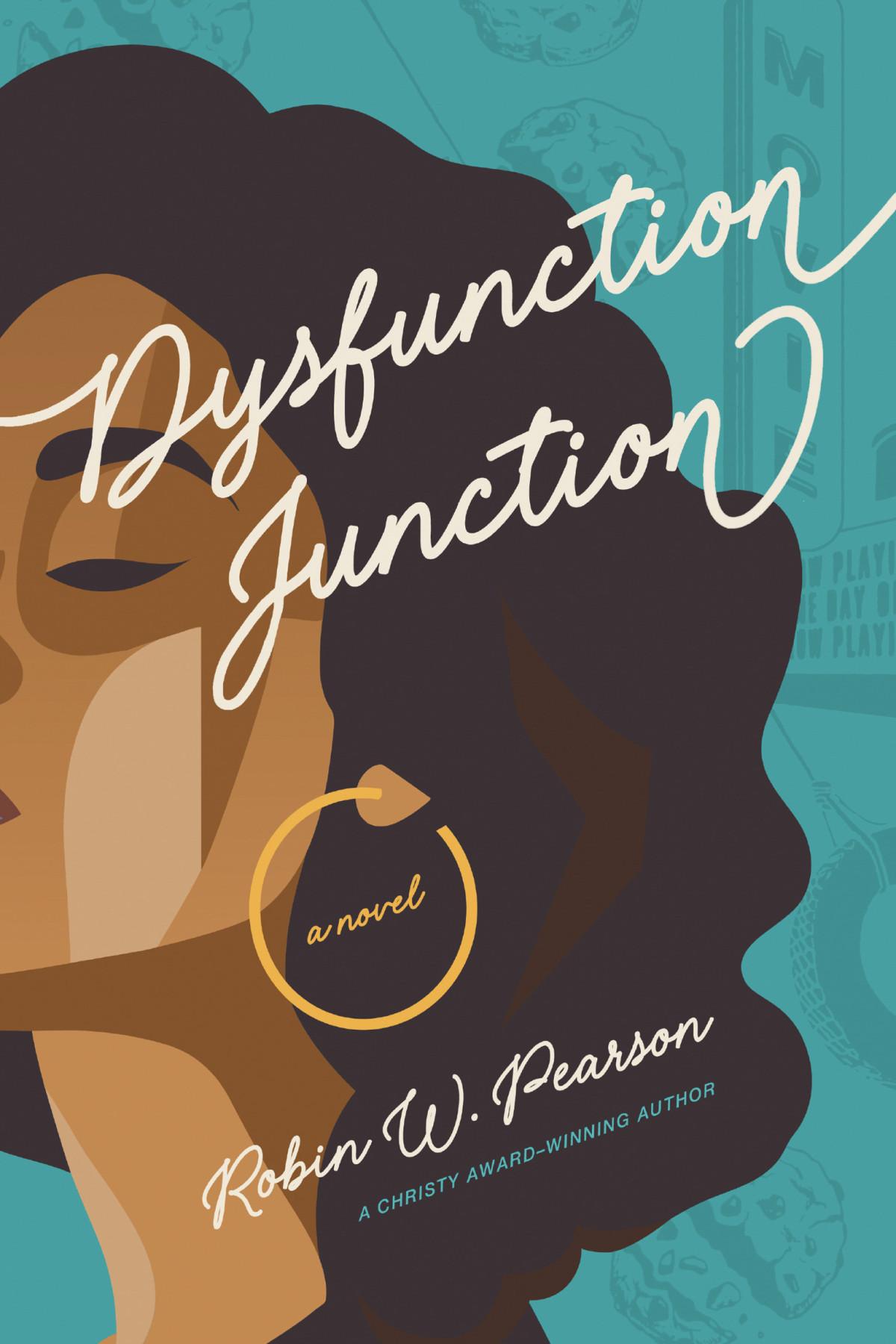
Dysfunction Junction Robin W. Pearson
https://ebookmass.com/product/dysfunction-junction-robin-wpearson/
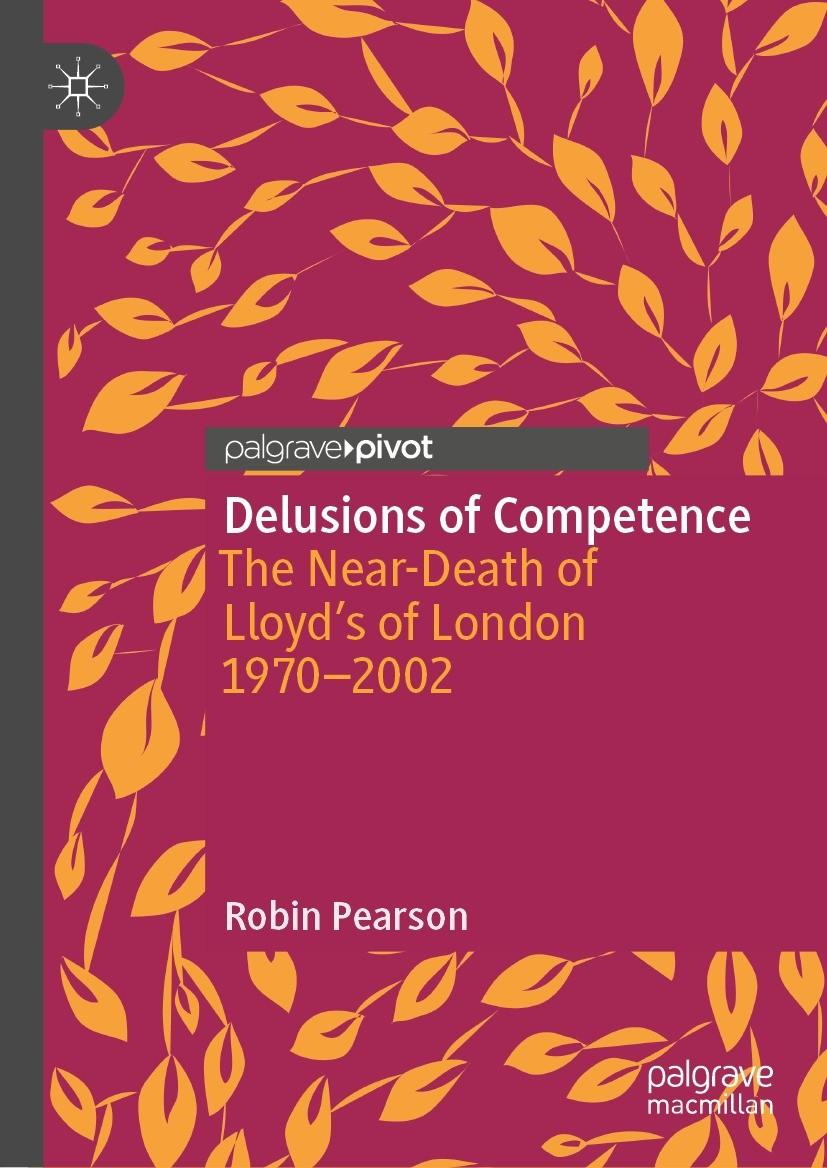
Delusions of Competence 1st Edition Robin Pearson
https://ebookmass.com/product/delusions-of-competence-1stedition-robin-pearson/

In the Weeds B K Borison
https://ebookmass.com/product/in-the-weeds-b-k-borison/

Iranian Syntax in Classical Armenian Robin. Meyer
https://ebookmass.com/product/iranian-syntax-in-classicalarmenian-robin-meyer/

Tall Dark and Wicked Alexi Blake
https://ebookmass.com/product/tall-dark-and-wicked-alexi-blake/
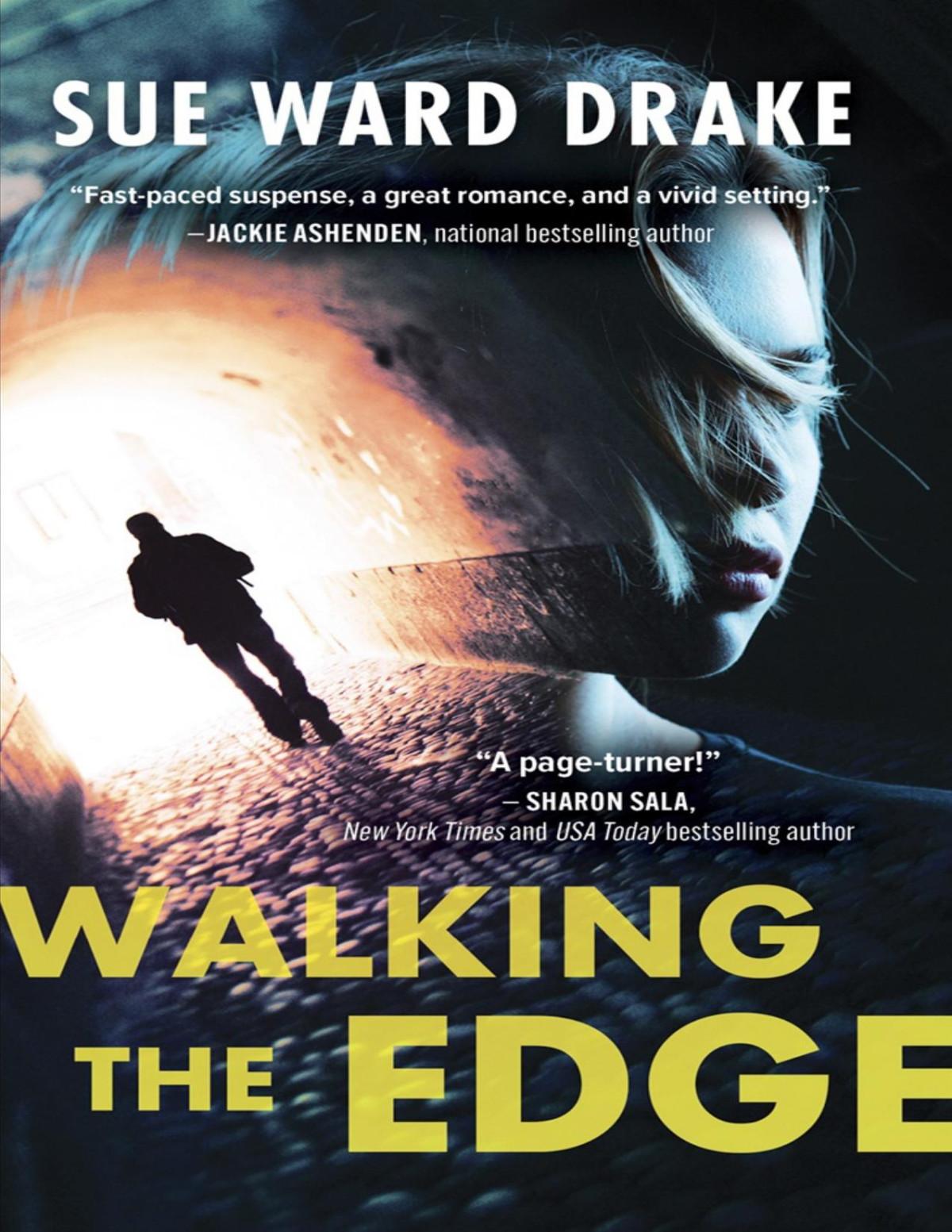
Walking the Edge Sue Ward Drake
https://ebookmass.com/product/walking-the-edge-sue-ward-drake/

Walking the Edge Sue Ward Drake
https://ebookmass.com/product/walking-the-edge-sue-ward-drake-2/
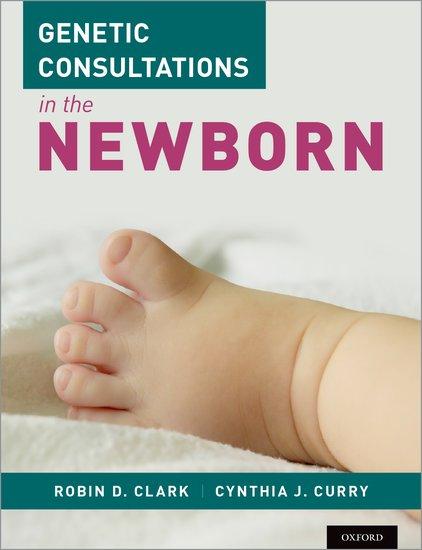
Genetic Consultations in the Newborn Robin D. Clark
https://ebookmass.com/product/genetic-consultations-in-thenewborn-robin-d-clark/


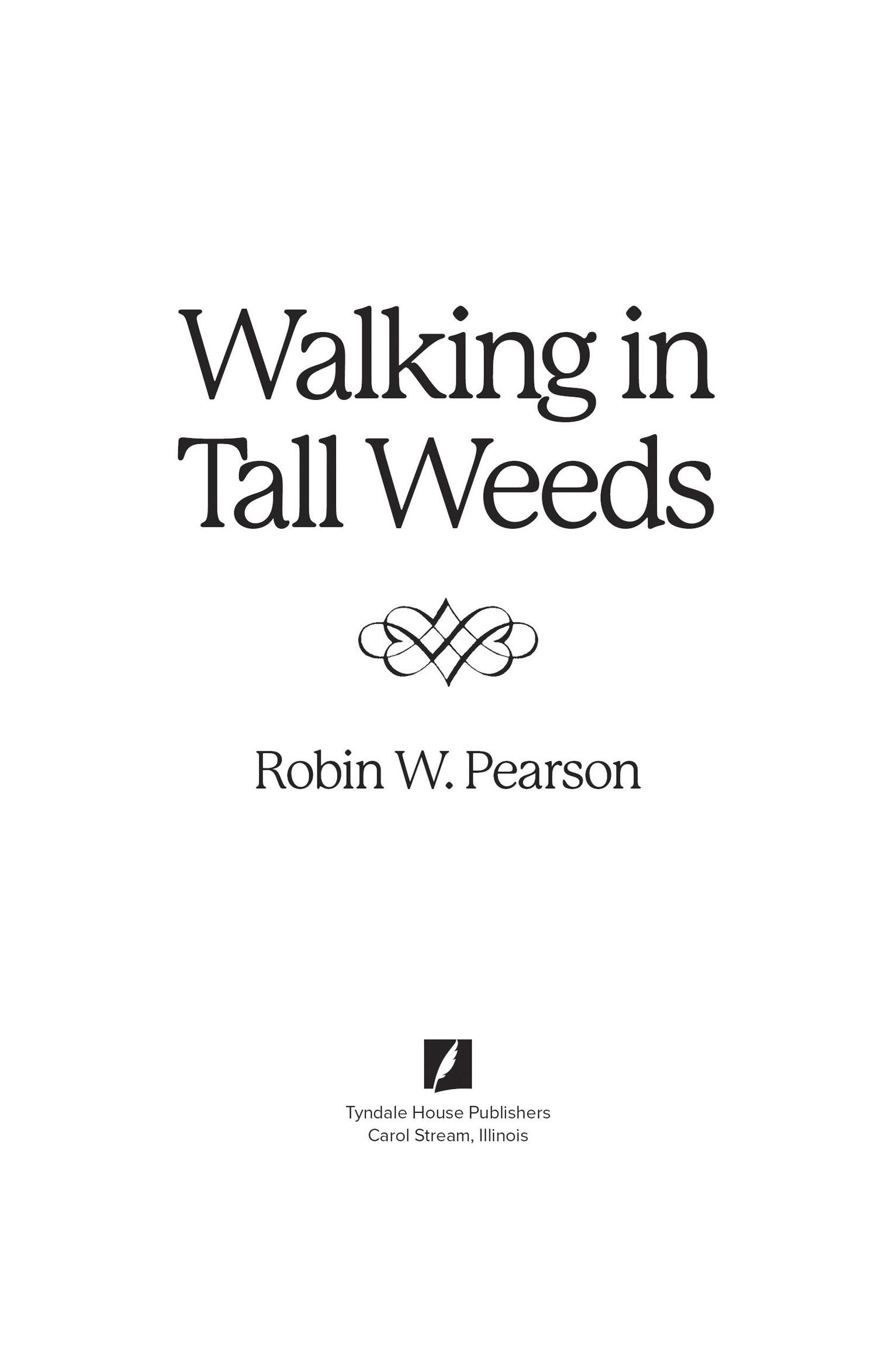
Praise for Robin W. Pearson
“With her distinctive voice and gorgeous insights, wordsmith Robin W. Pearson takes a brave and deep journey through the tall weeds of a family’s old pain, nagging fears, and challenging choices— painting a portrait of the path any willing family can take to finally walk into the promise of courageous, new life. Her invitation is beautiful, offered to our broken world at just the right time.”
PATRICIA RAYBON, award-winning author of AllThat Is Secret and IToldthe Mountain to Move: Learning to Pray So Things Change, on Walking in Tall Weeds
“There’s a special kind of musicality to Southern fiction that delights my mind, and Robin W. Pearson’s novels never fail to sing directly to my heart. . . . She’s given us another gift in her newest, Walkingin TallWeeds. . . . Pearson invites us—a large family from different backgrounds, skin tones, experiences—to tune our ears to the song of unity and forgiveness that is only possible through the power of Christ. Robin W. Pearson’s voice is strong and powerful. Listen up! You don’t want to miss a note!”
SUSIE FINKBEINER, author of The Nature ofSmallBirds and Stories That Bind Us
“In her latest novel, WalkinginTallWeeds, Pearson weaves together a rich tapestry of Southern charm while exposing issues often hidden behind polite dialect. Where families will finally see the importance of looking at their past through a lens of awareness in order to do better, instead of allowing the past to rob them of the joy of the here and now.”
T. I. LOWE, bestselling author of Under the Magnolias
“When I read Robin W. Pearson’s latest, I saw my own heart. She mixes life’s pain with Duke’s mayonnaise and smoked sausages and drop biscuits. And in the tapestry she weaves with words, I find what I hold on to, what I need to set free, and the striving in between.”
CHRIS FABRY, bestselling author of APiece ofthe Moon, on Walking in Tall Weeds
“Robin W. Pearson has a gift for capturing the complexity and nuances of family relationships. She brings a remarkable tenderness and compassion to the struggle we all face to know and be known in a family. Prepare yourself for a rich and satisfying read!”
SARAH LOUDIN THOMAS, award-winning author of The Right KindofFool, on Walking in TallWeeds
“Pearson delivers a satisfying tale of one woman’s secrets returning to haunt her. . . . Pearson’s excellent characters and plotting capture the complexity and beauty of family, the difficulty of rectifying mistakes, and the healing that comes from honesty. Pearson rises to another level with this excellent story.”
PUBLISHERSWEEKLY on ’TilIWant No More
“With help from her community, Maxine learns that by confronting her tangled past, she can face her future and discover her true self. Uplifting faith-based messages are included throughout, and the story’s easy pace allows time to take in each lesson.”
BOOKPAGE on ’TilIWant No More
“This novel’s slow pace allows readers to gain valuable insight into Maxine as she braves a great deal of soul-searching. A heartfelt tale about faith and family, readers can walk toward the altar with Maxine Owens as she tends to her past wounds.”
DEEPSOUTH magazine on ’TilIWant No More
“’TilIWantNoMorefeels like an extended afternoon at a family reunion barbecue, complete with mouthwatering food, spilled family secrets, and voices of faith that never lose hope. This brilliantly written story reminds us that God is bigger than the struggles that all families face, yet as a woman of color, I love that Robin’s courageous characters look and sound like me.”
BARB ROOSE, speaker and author of Surrendered: Letting Go andLiving like Jesus and Joshua: Winning the Worry Battle
“Robin W. Pearson has done it again—she truly knows how to captivate her readers and have them eagerly turning each page, anticipating what is going to happen next. ’TilIWantNoMoreis no exception. Maxine’s journey of love, longing, and finding her identity and worth is relatable to so many women, all of whom will be able to resonate with the many emotions of this bride-to-be as she seeks to find the joy and sense of belonging she’s been missing.”
ANGELIA WHITE STONE, CEO and editor of Hope for Women magazine
“Pearson writes strong characters who wrap their arms around you and pull you into the family circle, a hubbub of loyalty, secrets, faith, and yes, forgiveness. Nobody’s perfect—but maybe that’s the best theme woven through this book.”
BETH K. VOGT, award-winning author of the Thatcher Sisters series, on ’TilI Want No More
“Pearson’s excellent debut explores forgiveness and the burden of secrets. . . . Pearson’s saga is enjoyable and uncomfortable, but also funny and persistent in the way that only family can be.”
PUBLISHERSWEEKLY, starred review of ALong Time Comin’
“Pearson delivers a poignant debut that explores the faith of one African American family. . . . The writing is strong, and the story is engaging, and readers will be pleased to discover a new voice in
Southern inspirational fiction.”
BOOKLIST on ALong Time Comin’
“Robin W. Pearson’s debut novel is a contemporary fiction masterpiece. . . . Set in North Carolina, readers will feel the heat, smell the food, and hear the bees buzzing in the background. . . . Pearson has created a story that makes you feel like you’re in the same room as the characters. Do not miss this one.”
CHRISTIAN FICTION ADVISOR on ALong Time Comin’
“Readers will cry, laugh, sigh wistfully, and even rage a little at this moving story. ALongTimeComin’is a wonderful tale of love, family, secrets, relationships, and forgiveness that will teach us all how to live well in the midst of real life.”
THEBANNER magazine
“Robin W. Pearson delivers a fresh new voice for Southern fiction, treating readers to an inspiring journey through the complex matters of the heart.”
JULIE CANTRELL, New YorkTimes and USAToday bestselling author
“Robin W. Pearson’s authentic faith and abundant talent shine through in this wholehearted novel. Bee and Evelyn will stir your heart and stay with you long after the last page of ALongTime Comin’is turned.”
MARYBETH MAYHEW WHALEN, author of Only Ever Her
“Robin W. Pearson’s singular style and fully realized cast of characters ring proudly throughout this novel. Her masterful voice is a welcome addition to the genre of family sagas rooted in hope and faith.”
LIZ JOHNSON, bestselling author of The RedDoor Inn, on ALong Time Comin’
“ALongTimeComin’is a tender and sweet story of a cantankerous grandmother and her dear family members. . . . Her characters are charming, endearing, and flawed. I hope we have many years to come of reading Pearson’s work.”
KATARA
PATTON, author
Visit Tyndale online at tyndale.com
Visit Robin W. Pearson’s website at robinwpearson.com.
Tyndaleand Tyndale’s quill logo are registered trademarks of Tyndale House Ministries. WalkinginTallWeeds
Copyright © 2022 by Robin W. Pearson. All rights reserved.
Cover photograph of couple’s hands copyright © by Rob and Julia Campbell Canada/Stocksy.com. All rights reserved.
Designed by Lindsey Bergsma
Edited by Kathryn S. Olson
Published in association with the literary agency of Books & Such Literary Management, 52 Mission Circle, Suite 122, PMB 170, Santa Rosa, CA 95409.
All Scripture quotations, unless otherwise indicated, are taken from the New King James Version®. Copyright © 1982 by Thomas Nelson. Used by permission. All rights reserved.
Acts 10:34-35 in chapter 8, Proverbs 27:9 in the acknowledgments, and Proverbs 27:17 in the discussion questions are taken from the HolyBible, New Living Translation, copyright © 1996, 2004, 2015 by Tyndale House Foundation. Used by permission of Tyndale House Publishers, Carol Stream, Illinois 60188. All rights reserved.
WalkinginTallWeedsis a work of fiction. Where real people, events, establishments, organizations, or locales appear, they are used fictitiously. All other elements of the novel are drawn from the author’s imagination. For information about special discounts for bulk purchases, please contact Tyndale House Publishers at csresponse@tyndale.com or call 1-855-277-9400.
Library of Congress Cataloging-in-Publication Data
A catalog record for this book is available from the Library of Congress.
ISBN 978-1-4964-5371-6 (HC)
ISBN 978-1-4964-5372-3 (SC)
Build: 2022-06-07 10:16:53 EPUB 3.0
TotheonetrueGod, whoknowsmyheart, andmyoneandonlyEddie, whomakesitbeatfaster .
“Behold,Youdesiretruthintheinwardparts, Andinthehiddenpart
Youwillmakemetoknowwisdom.”
S A L M 5 1 : 6
Chapter One
Chapter Two
Chapter Three
Chapter Four
Chapter Five
Chapter Six
Chapter Seven
Chapter Eight
Chapter Nine
Chapter Ten
Chapter Eleven
Chapter Twelve
Chapter Thirteen
Chapter Fourteen
Chapter Fifteen
Chapter Sixteen
Chapter Seventeen
Chapter Eighteen
Chapter Nineteen
Chapter Twenty
Contents
Chapter Twenty-One
Chapter Twenty-Two
Chapter Twenty-Three
Chapter Twenty-Four
Chapter Twenty-Five
Chapter Twenty-Six
Chapter Twenty-Seven
Previewof’Til I Want No More
ANotefromtheAuthor
Acknowledgments
AbouttheAuthor
DiscussionQuestions
Chapter One

THURSDAY
When Paulette was six years old, her daddy tried to explain how a half-baked plan was as bad as no plan at all. Worse even.
“Those teachers should’ve known better than to send the children out willy-nilly. Pure foolishness.” Harold Burdell stood there outside Greater Hope, one hand clasping her shoulder, the other fisted on his right hip. Around them, the ocean of grass undulated in the spring breeze, wrapping around the churchyard and the sprinkle of broken-down headstones that poked like alabaster-colored mushrooms through the earth.
Paulette paid him about two cents’ worth of attention as she watched all the Easter eggs get snatched up by the older Sunday school students. Her breath hitched, making her head rock back in a mournful rhythm. She rubbed the spot in the middle of her chest where another rambunctious child’s elbow had poked her.
Her daddy tipped back the brim of his tan bowler and he knelt, one leg hovering over the springy fescue, just shy of a stain. “What’s the good in cryin’ over some dyed eggs? The whole church knows Sister Franklin don’t have enough sense to tuck any extra under that fancy Easter bonnet of hers.”
Briny drops coursed over the rough thumb he brushed across Paulette’s cheek. “Now, dry those tears, and let this day be a lesson to you about the importance of layin’ out your steps and followin’ ’em. It makes it harder to fall. That’s a powerful lesson I wish
somebody had taught me when I was your age. It would’ve saved you and me both a heck of a lot more heartache in life than cryin’ over some hard-boiled eggs.”
Paulette had promptly dumped out most of her daddy’s advice along with the artificial dirt and grass in her beribboned, empty Easter basket. What had tried to take root in her mind, she’d plucked like a weed. Sticking to a plan never became her forte. Yet she had learned not to cry when her world didn’t look the way she wanted it to.
Now, nearly fifty-four years later, as she squinted at the stack of electric-pink sticky notes in her hand, she could hear her daddy’s tsk, tsk, chiding Paulette for lacking the foresight to retrieve her reading glasses before electing to work outside. It made no never mind, she decided, shaking off the rebuke. She had a clear understanding of what she was writing even if she had to squint to see it.
1.Work.
2.Theflight.
3.AskaboutKerry. . .Kristy. . .Katina?Hisgirlfr—
Whirrrrr . Paulette’s hand froze. A hummingbird with a shimmering, deep-purple throat hovered barely five feet away, just above the boxwood shrub flanking the brick patio attached to the house. Its head jerked one way, then the other, its charcoal bead of an eye taking stock of Paulette. After a few seconds, without visiting either of the orange feeders dangling from wire on the left and right of her, the palm-size bird vanished in the canopy of hickory, maple, pine, and oak trees enfolding the house.
Paulette finished writing -iend. But something about that compound word didn’t sit right with her. She studied it for a heartbeat or two before drawing a bold X through the first syllable
and underlining the friendthat remained. Then she sat back and soaked in the quiet of the morning, much as the thirsty blades of grass drank up the dew, and tapped the pen against the glass table.
The gentle, far-off calls of the larks, swallows, and warblers contributed to the hush surrounding Paulette. A grateful interloper, she eyed the hazy gray-blue of the sky framing the North Carolina side of the not-too-distant Blue Ridge Mountains before jotting down a few more thoughts that she pressed to the table one by one.
4. Hisflyinglessons!Didhestartthose?
5.Theplants—
“Ahh!” A firm squeeze on both shoulders sent Paulette’s pen clattering to the brick pavers. She leaped to her feet, a paper square adhered to her index and middle fingers, and faced a pair of deepset brown eyes she always felt could swallow her whole. “Frederick Baldwin, you liked to scared me to death!”
Her husband raised a brow; two lines creased the otherwisesmooth milk chocolate of his forehead. “‘Liked to’? I must have, because you sound like the old Paulette who grew up in eastern North Carolina.”
“That’s because the new Paulette livin’ in Hickory Grove nearly fainted dead away. You know I hate surprises. Shame on you, Fred.” She wondered if he could hear the pop her knees made as she squatted to retrieve the pen.
“I didn’t realize you were swimming around in those thoughts of yours. What’s all this?” Fred peeled a note from the glass.
Paulette grunted as she extended her arm under the chair. Her fingers brushed the silver clip on the cap before she finally hooked it with a nail. She leaned into the hand that cupped her elbow and stood. As she moved away, Fred draped an arm around her and pulled her closer, causing her nose to bump his shoulder.
“Good morning, by the way.” He seemed to hesitate before dipping his head toward her.
Paulette relaxed into him but her kiss was merely a sprinkling of fairy dust on his lips. She lifted the square from his fingers and stacked them all in numbered order. “Mornin’. I see you’re up and at ’em, but don’t you start rushin’ me. I know how you get when you have to wait.” She stepped away to lift the black wrought iron chair and set it under the table. Then she faced her husband again and noted his raised arm, hanging with nothing to do, no one to comfort. She squared her shoulders to help her bear the cumbersome weight of his steady gaze. “What?”
Fred’s lips contorted, nearly forming a smile before they flattened into a line under his thick mustache. He lowered his orphaned appendage and hid his hand in his pocket. “Nothing. Just admiring you.” When he cleared his throat, it erased any glimmerings of thoughts from his face. “When did you start making lists?”
“I didn’t. Well, not really.” She fluffed up the layers of her darkbrown shoulder-length hair, wishing she could’ve squeezed in a trip to the salon between piano students or canceled the afternoon’s lessons altogether. But no, that was nowhere near the truth. Some of those children never even thought of the piano between lessons, let alone touched one. And eight-year-old Lucy, that child’s ear for music made up for her intractability. Why rearrange the afternoon to flat iron and color some nappy roots that McKinley would never notice?
Hismail!IneedtomakesureIgivehimhis—
“I can see your mind churning like the wings on that hummingbird over there.” Fred inched back his wide white cuff to reveal his watch. The sun glinted off its crystal face. “But whatever thought you just picked up, set it down again and let it rest. We have a long drive ahead of us. You can elucidate your honey dos on
the way.” He hooked an index finger under the strap of her green crocheted satchel and let the bag swing gently to and fro. “That’s all I was coming to do: collect my worker bee and get a move on.”
“Just layin’ out my steps, not makin’ work for you. I thought I’d plan some talkin’ points with McKinley so I don’t forget what I want to say.” She stuffed the notes into a leather book that still had a price tag on its cover. Then she lifted the bag from his finger and stowed everything inside.
Fred shook his head. “I wouldn’t resurrect your daddy’s list making, Etta.”
“You don’t have to worry about that. I’m only followin’ what he said, not what he did. These are more like . . . ideas. Reminders. You know you and I don’t have the best track record for stayin’ out the weeds, Fred.”
There was no give in the lists of dos and don’ts Harold Burdell had raised his daughter by, just take. Her daddy’s timekeeping didn’t set riverbanks that kept Paulette’s life from overflowing with too much; his planning erected stultifying, narrow walls. There was always a right thing to do, which meant there was a wrong, too. Paulette had never been able to see the maybes or what-ifs that life offered every now and again because her daddy and his infernal lists blocked her view. Considering life’s possibilities hadn’t done him much good, and he’d tried to keep his only child from coming to the same tragic end.
Hence, her sticky notes and her new journal . . . and Fred. This was the closest she’d ever come to planning ahead. She’d do what was within her power not to mess up this time with her son.
“I know we haven’t seen McKinley since he tore outta here after Christmas last year, but he’ll be here long enough. You’ll have plenty of time to say everything you need to say but not enough to say the
things you shouldn’t. By the time you get through with him, he probably won’t mind a little quiet.” Her husband led the way to the French door opening into the sunroom.
Suddenly Paulette grasped his hand and held it between both of hers, drawing him up short. “McKinley . . . he’s finally coming home!” She flung her arms around his shoulders, pressing her curves against him, and planted a kiss on Fred’s obviously shocked lips.
After a second, he recovered and gave both his arms and lips a home, however briefly.

Fred whipped into the spot nearest the section delineated as American Airlines arrivals, grateful that the airport outside Greensboro allowed them to park close enough to see him the second he emerged through the automatic doors. It had been too long since he’d seen his boy—Frederick McKinley Baldwin Jr. His only son. His namesake. When Paulette had announced her pregnancy after years of trying, Fred had imagined himself the progenitor of a passel of Baldwins; this child’s, one of many sets of hands and feet to crawl across their hardwood floors. But a post-birth emergency had inserted an exclamation point after his son, not a comma. Thank God he hadn’t had to arm wrestle Paulette for that privilege to append “Junior” to his baby’s name, for he was to be the only, not the first.
To think his wife needed conversation starters! Those two typically communicated whole sentences with a wink or a shrug. He glanced at Paulette, whose pen was poised over another daggone pink square stuck inside that book, tapping out little polka dots around the paper. Fred’s heart tilted in her direction, and he considered leaning over and placing his lips on a spot her periwinkle sundress had left bare. Maybe they could talk about some of those
“conversation starters.” He probably could use a refresher course himself in the art of conversing with Junior, what he’d call his son in front of God and everybody if Paulette wouldn’t have such a fit about it. In her mind, McKinley was to be a junior in name only.
He gave himself a brisk mental shake and turned away from Paulette’s sun-kissed shoulder. This visit had rattled him as much as her. Instead, he combed the flow of rumbling metal carts and chattering, snatch-their-children-back-in-line, loaded-down humanity pouring from the bowels of Piedmont Triad International Airport.
Wait.Isit. . . ?Fred shifted and leaned forward in his seat as a tall, broad-shouldered figure emerged through a set of automatic sliding doors at the next bay marked for Delta, right behind a family leading a stocky, raspberry-vested dog with a smushed face. Yes, Junior!Paulette must have tripped up somewhere about the airline. Seeing the familiar clean-shaven jawline, Fred swallowed a suspicious tickle in the back of his nose and a grin that attempted to wrench control of his face. No need to get emotional, make the boy run for the hills.
He leaned across the console to Paulette—so engrossed in each darn tree she couldn’t see the forest and pointed out her window. Then he quickly opened the door and climbed from the car as the ding-ding-dingreminded him to extract the key from the ignition. Fred raised his hand to draw Junior’s attention their way, across the two lanes of stop-and-go traffic between the metered lot and the sidewalk. His hand hovered at his shoulder for a second before dropping to his side. What was Junior doing—the funky chicken?
From Fred’s perspective, his son was dancing in place as other travelers converged around him and his suitcase, but not before they gave him the stink eye. Two squares of sidewalk in front of Junior, a white couple pulled a set of luggage, performing an odd side-to-side jiggle of their own. All the boy had to do was step off the curb to his right or jag to his left, and the man and woman could pass
undeterred. Fred stood straight, lifted his chin, and reared back his shoulders, readying himself to take a direct hit in the gut for his son, if only he could.
“You’d better not put a toe off that sidewalk, Son. Not one toe.” Frederick was barely aware of his lips moving as he watched the scene, of his own voice that was a decibel louder than a thought.
“Fred . . . ? What are you talking about? Who are you talking to?” Paulette had finally put down that infernal pen and stepped out. She braced her fingertips on the car’s roof, creating a bridge for the shadows of the birds overhead to flit under. “What’s set you off this time?”
He nodded in their son’s direction, his eyes pinned on him. “Just thinking about how my grandfather had to dip his head and move aside when men like Clinton George walked by. Papa said he used to act like he owned the whole street, that he was entitled to be first just because God made his skin a few shades lighter or his eyes blue. Papa would squeeze my hand nice and tight, which was his way of telling me, ‘Don’t worry about the man. Hold on just a little while longer. God will make everything right . . .’ I used to wonder if God might need a little help. He sure seemed to be taking His time.”
Theman.His grandfather’s name for white folks in authority— particularly the George family, long-standing citizens of Hickory Grove. Papa had passed down this designation through the generations to land squarely on Frederick, who held on to the past with one hand and pulled himself up the ladder with the other. Sometimes, like his papa, he dunked the words into a reservoir of bitterness when a cup of sugar-laced coffee relaxed his tongue or a memory whispered his name. It didn’t matter if Fred was sitting cross-legged on their front porch or witnessing a chance encounter like this one; the experience tasted the same. He blew air into his right cheek, chewing on the recollection like he’d sneaked a plug of Papa’s Red Man tobacco and stuffed his jaw with it.
Fred’s low voice seemed to speak to his own heart as much as from it. “Raise those eyes, Junior. Stand tall. Keep walkin’. Do it for Papa. Do it for me.”
Paulette turned in the direction of her husband’s glare. “Frederick . . . ”
“I don’t care how slowly you say my name, Paulette, and don’t come telling me I need to love the Georges and everybody who looks like them. You know I do, even if they don’t all love me. Papa didn’t step off those sidewalks because he was weak; he did it because he was strong enough to take care of me. I just hope I’ve taught my son in such a way that he knows the time to step aside is long gone, Etta. I see the world as it is, not the way I want it to be.”
Andmaybejustalittlelikethewayitwas.It didn’t take much effort to squash that whisper of his conscience, but it wasn’t so easy to turn a deaf ear to his wife.
“Your vision is clouded by memories, Frederick, and not just your own but all the ones you inherited. Only the Lord sees who we really are and what controls us. He knows what we need to hold on to and what we should set free. Down deep, where we feel the most hurt. The way you talk makes me wonder what you see and feel when you look at me.”
His chest muscles constricted as he disregarded the entreaty plainly written on her face to aim an unspoken appeal of another kind in his son’s direction.
Just then, a pearl Yukon XL, its finish so clean and shimmery it reflected their image, drove up and braked, blocking the Baldwins, the elder set from the younger. By the time its passengers unloaded and the truck pulled away, Junior’s dancing partners had left him behind in the thinning crowd, his head bowed toward feet embedded in the concrete.
Fred expelled his breath, wondering if someway, somehow, the boy’s mind had overcome his heart. For a change.
“Goodness gracious!”
Fred’s hand clenched. “What is it, Paulette?”
She stood there, her fingers no longer a bridge but a muffler over her mouth. “What in the devil did he do to his hair?”

Honk!
“McKinley! Mac-KIN-ley!”
That couldn’t be anything but his mama’s voice—the sonorous alarm that used to drag him from bed on Sunday mornings when he was squeezing his eyes shut for a few extra minutes, the bugle call that had announced mealtimes, the persistent contralto that wasn’t content to let him while away Saturday afternoons on a video game. McKinley cast a final glance at the retreating matching blond heads of the couple who had unwittingly caused beads of sweat to form on the bridge of his wide nose.
As the two had approached, McKinley’s right heel had caught on the wheel of his suitcase. He suspected his leg had buckled under the weight of his decision. Or rather, his indecision.
It was simple, really: step off the curb so the couple could pass, unimpeded, or train his eyes on some distant spot between and beyond them and keep his two left feet moving. Granted, they were walking on the wrong side. And technically he’d claimed this path before they’d emerged from the back seat of the black Lincoln Continental, slammed the door, and stepped onto the sidewalk. But the strangers could have been his parents—of similar age; shoulders grazing each other, though their hands were intertwined; “Frederick” sporting a gray seersucker suit, “Paulette” resplendent in a flowing, knee-length striped dress. How could he render asunder his mom and dad, for goodness’ sake?
After an awkward three or four seconds the man had smiled, nodded, and tugged his companion closer until she was plastered to his hip, more intimately than the real Paulette and Fred would ever naturally choose. Conjoined, they’d glided around McKinley on his right side in a heady, perfumed wave, blending with the traffic flowing in the opposite direction—the rightdirection—away from him. And suddenly, as they strolled off, engaged in some conversation about someone who’d “served Limburger cheese and white wine,” he’d felt in the wrong, like he’d turned a cold shoulder to all his mama’s gentle teaching on kindness and attacked his father’s sense of honor.
“McKinley!”
Again the call, the one that surely came from Paulette Baldwin. Neither the placating tone convincing him to do something he didn’t want to do nor the authoritative voice denying him something he did. The sound of his name on her tongue had softened over the years—the time ticking off his life, not hers—in deference to his manhood, reflecting the change in their relationship from mama and child to mother and son who had grown too soon, at least by her estimation.
So McKinley turned toward the person waving both her hands— as if he could overlook his mother, one of the reasons he’d booked a two o’clock flight back to North Carolina—and he spied the second reason, the reason he’d fled to Pennsylvania in the first place: Frederick Baldwin Sr., squinting at him from the far side of his parked, smoky-blue Mercedes sedan. He stood tall with one arm draped across the roof of his car and his other hand propping open the driver’s door.
McKinley knew his father was anything but relaxed, and the sun was nowhere near his eyes under the shady overhang of the metered lot, despite what his stance might imply to passersby. Over the years, Dad had taught him that waitwas a four-letter word of
the most obscene kind. When it was time to go, it was time, no ifs, ands, or buts. Yet out of respect for the woman whose passive, yet intrinsic lifelong aims were to resist the pressures of the clock-loving world and impress upon her husband the meaning of long-suffering, his father had learned to camouflage his impatience with narrowed eyes and perfect posture. The way McKinley imagined a panther stretched out under a banyan tree watched an impala stroll by.
McKinley sucked in thick, exhaust-tinged, Carolina-blue air through his nostrils and polluted his chest with it. Then he smoothed his blazer, the one his mama “suggested” he wear so he looked the part, not that it had earned him more than a pack of Goldfish and a miniature Coke on the short flight. He suspected his ripped, formfitting jeans would cause her all manner of stress, but the independent, mature artist within reared up at completely yielding to the part of him that ever tried and failed to simultaneously please these two, the elder Baldwins.
And yet . . . seeing them unglued McKinley’s sneaker-clad feet. It also accelerated his heart rate just a touch as he strode across the road, ducking between cars blocking the white hash lines of the pedestrian crossing and travelers looking for their rides. Conflicted though he was about his trip home, he couldn’t restrain the smile that stretched closer and closer to his earlobes so that, by the time he released his grip on the handle of his Samsonite case and wrapped his long arms around his mother’s waist, nearly all his even, white teeth must have been showing.
Muscle memory made his knees bend just enough for her to fit her head in the crook of his neck and her arms to encircle his shoulders, for he knew better than to form a ninety-degree angle to hug her. The first time his sixteen-year-old self had tried that, Paulette swatted his head and warned, “Boy, I’m still your mama!” McKinley closed his eyes. The past nine months looked smaller and faded faster in the rearview mirror, but gracious, they’d felt too long.
But all he murmured was “M-o-m-m-m . . . hey.” Then he stepped back so she could cup his face, what she did whether it had been nine hours or nine months, and lock her clear hazel eyes with his deep-brown ones. The crinkles in the corners of her lids testified to what was always itching for a starring role on her face but what she tended to suppress, sharing her joy in teaspoonfuls rather than with a ladle. Today, though, they both grinned like they’d discovered the secret to long life and wanted the whole world to know it. Mother and son turned as one when a shadow beside them shifted and eclipsed their own.
Paulette’s clenched fingers only allowed McKinley to slip his right hand free in order to clasp his father’s. The elbows of the two men locked, keeping them at arm’s length. McKinley nodded. “Sir.”
Frederick Sr. covered their fingers with his free hand, his platinum wedding band bumping McKinley’s bare knuckle. His smile was warm but emitted a lower wattage than Paulette’s. “Son. You look good.”
“Yes, you do, but whatcha got goin’ on up here?” Dainty fingers pulled his hair. She seemed to enjoy extending each coil and watching it spring back into place.
McKinley ducked away. “I’m growing it out, Mom . . . Kelsey twisted it for me.” He dangled the name as a distraction to quell the criticism battling with curiosity for purchase in her face. His words were the mechanism to make his mother release his hand. Her eyes widened as she pressed her flattened lips against her teeth as if trapping her words.
Clap. His father rubbed his hands together. “Why don’t we get loaded and catch up in the car?”
“Speaking of . . . Nice!” McKinley’s hand hovered just over the shiny finish of his father’s latest toy. “I think this one is my favorite, by far.”
“You know your daddy. If nothing else, he’ll splurge on an automobile.”
“It’s not a splurge. Just making up for all that walking I had to do.” Fred tucked his hands in his pockets, jingling the ever-present change he carried.
His father’s childhood poverty, something else that was never far from him. He cradled that status like it was newly born, not a decades-old, fully grown memory. McKinley’s burgeoning admiration of the car withered and died. “Hey, when was the last time you had to walk somewhere? Not counting the trip from the den to the kitchen.” Though mocking, his tone was swathed in respect.
“I do know it’s a long walk home, Son.” Dad sounded dry despite the humidity. His words harkened back to an old joke between father and son, but the humor in the admonition had long since worn thin.
“And on that note . . .” Paulette opened the passenger door and reached down to adjust her seat.
“Yes, your mama has some surprises up her sleeve, so we’d better get moving. There’s sure to be traffic on the way back to Hickory Grove. Not the kind you’re used to in Philadelphia, but enough to slow us down quite a bit.” He pressed a button on his key fob and stepped toward the trunk.
“Oh, and I should tell you I’ve decided to extend the visit through next weekend . . . at least. I purchased a one-way ticket, and I’ve rented a car to drive back.” McKinley trailed his father, thinking of his own pocketful of secrets. He carefully set his bag beside the ever-present emergency kit his mother had put together years ago and the striped blanket in the otherwise-pristine compartment. His mother made sure none of their cars ever left home without those supplies. When he straightened, he addressed the unspoken question taking up space between them. “I know I’ll have more to take back than I brought with me. I hope that’s okay.”
“Of course. That goes without saying.”
Yet it did need to be said. Dad’s furrowed brow cooled the warmth in his welcome by a degree or two. McKinley wondered if his father remembered the last time he was home. AreyouthinkingI wanttheflexibilitytocutandrunagainwhenIfeellikeit?
“Well, that’s an unexpected blessing! Now you can pack a cooler. I’ll buy you some of those smoked sausages you love since you can’t find them up there and maybe some Duke’s mayonnaise. Oh, and there’re some things I found in the attic you might want for your new place. I can’t believe you might be buyin’ a house! Even more to talk about on the way home. Right, Fred?” Paulette’s voice carried a smile as the trunk closed.
“Even more . . . ?” McKinley’s eyes ricocheted between his parents.
“For one, your mama has taken up list making. That’s what, item thirteen?” Ironically, his father’s impassive face relayed what he really thought.
“Lists? You, Mom? Does this have something to do with the surprises Dad mentioned?” As if they needed another pothole, speed bump, or detour on what looked like a portentous drive to Hickory Grove.
“More like takin’ notes. I thought I’d try it on for size. See if there’s room for improvement. And as far as surprises go—” Paulette winked at the men—“it’s not every day a woman gets to plan her send-off to prison. We might as well make a day of it!”
